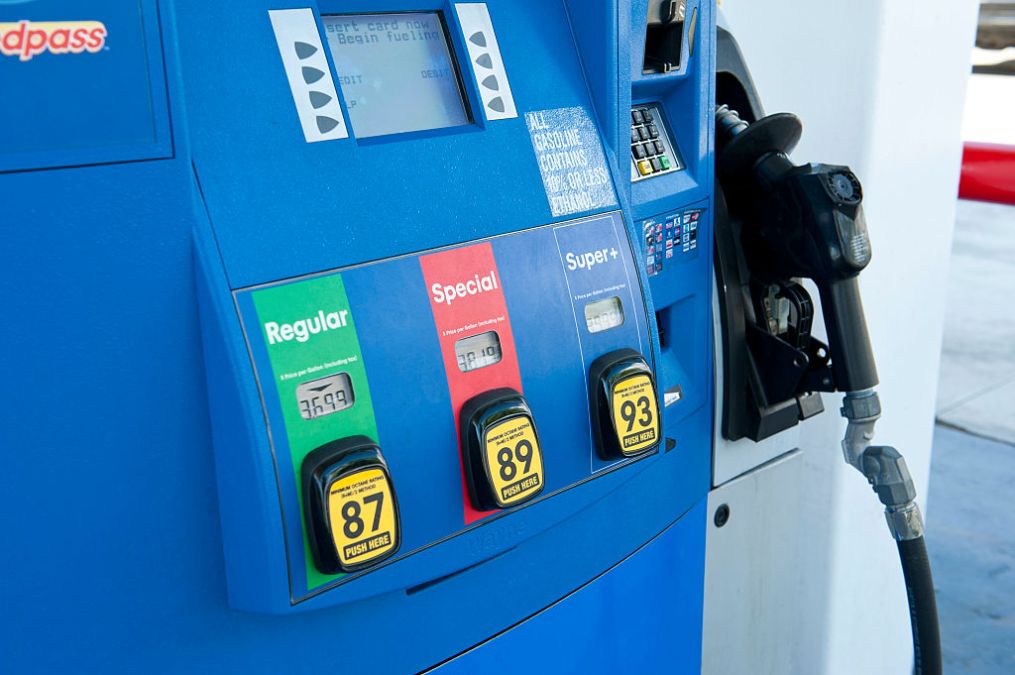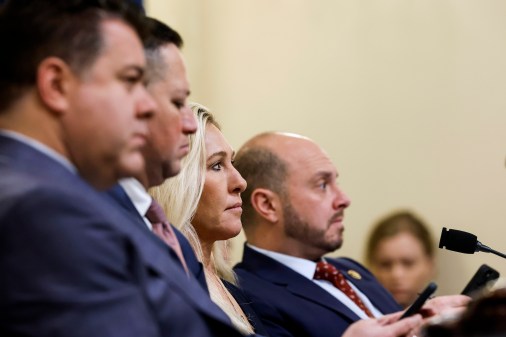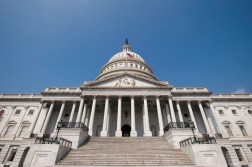Amid ransomware fallout, Energy Secretary asks Americans to avoid panic buying fuel

If Americans are starting to feel the cascading effects of a recent ransomware incident affecting Colonial Pipeline, they should resist the temptation to buy more gasoline than they need, U.S. officials say.
Energy Secretary Jennifer Granholm said Tuesday several states will likely feel effects on their fuel supplies in the coming days as a result of Colonial Pipeline shutting down operations last Friday following a ransomware attack. Colonial Pipeline, which supplies 45% of the East Coast’s transportation fuels, normally supplies 100 million gallons of gas from Texas to New York daily.
Secretary Granholm said that after speaking with the CEO of the firm, she expects Colonial Pipeline to restore service by the end of the week.
There is not a shortage of gasoline, Granholm said. The issue is that deliveries are held up as a result of the company shuttering some operations after the ransomware incident.
“The [supply] crunch is in the areas that are affected by the pipeline, the main spurs of the pipeline that really is the southeast, about 70% of the supplies of North Carolina, South Carolina, Tennessee, Georgia and especially Southern Virginia are impacted the most,” Granholm said during a Tuesday briefing at the White House.
“We know that we have gasoline, we just have to get it to the right places, and that’s why these next couple of days, I think, will be challenging,” Granholm went on. “We want to encourage people: it’s not that we have a gasoline shortage, it’s that we have this supply crunch, and that things will be back to normal soon.”
Granholm urged Americans not to panic in the meantime.
“We’re asking people not to hoard, and know that we are all over this,” Granholm said.
On Monday, demand among customers for gasoline was up approximately 40% compared to the prior week in several key states, including in North and South Carolinas, Georgia, Tennessee and Florida, Patrick DeHaan, the head of petroleum analysis at GasBuddy, told CyberScoop. GasBuddy is a technology company that helps users track gas stations’ supplies and prices.
Anxiety about fuel supplies spotlights the way a cyber incident can affect Americans’ day-to-day lives, particularly as U.S. officials have increasingly warned about the threat of ransomware from a public safety perspective.
The issues with fuel are stemming from the fact that Colonial Pipeline shut down its operations in order to prevent the ransomware from spreading from company’s networks to its operational technology. FBI officials have traced the incident back to a ransomware syndicate called DarkSide, which sells its malicious software to other scammers. Colonial Pipeline has been working to restore service in recent days but operations were still down at press time early Wednesday.
Some gas stations in affected states are already running out of fuel, according to GasBuddy. Approximately 15.4% of stations in Georgia, 24.8% of stations in North Carolina and 15.0% of stations in Virginia were out of gas by Wednesday morning, GasBuddy found.
When Colonial Pipeline returns to service, markets will likely have to wait for supply to even out, according to the U.S. Energy Information Administration (EIA), as pipeline shipments will take time to arrive at their destinations.
“Pipeline shipments move at approximately five miles per hour, so some markets may need to rely on inventories for several days after Colonial Pipeline service is restored,” the EIA said in a release Tuesday.
The federal government has sought to help smooth any bumps that could impact Americans’ access to fuel. The Department of Transportation (DOT) issued an emergency order to allow truck drivers carrying gasoline, diesel, jet fuel and other refined petroleum products to travel for longer hours to make up for any potential gaps in supply.
The Environmental Protection Agency likewise issued an emergency fuel waiver Tuesday, given the “extreme and unusual fuel supply circumstances.”
As of Tuesday, DOT’s Federal Railroad Administration is examining what rail operators might be able to assist in transporting fuel from ports to locations that may experience gaps in supply in the coming days. The DOT is also considering whether to issue waivers for the Jones Act, which could allow non-U.S. ships to carry gasoline to U.S. ports.
The news comes weeks after analysts predicted Americans could face gas shortages this summer as the U.S. emerges from the pandemic and travel increases.






